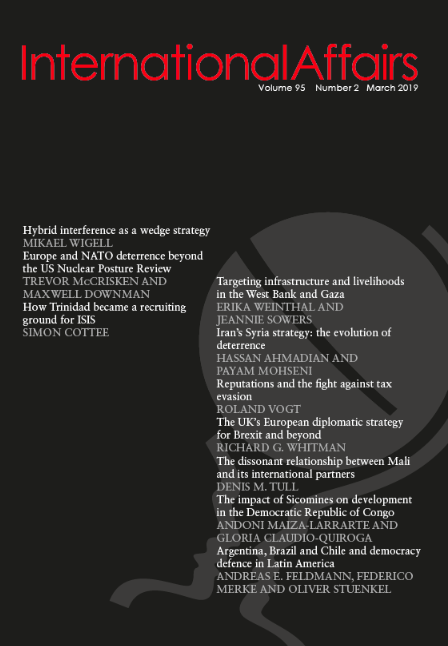Authors: Andreas E. Feldmann, Federico Merke, Oliver Stuenkel
International Affairs, Volume 95, Issue 2, 1 March 2019, Pages 447–467, https://doi.org/10.1093/ia/iiz025
Published: 01 March 2019
Abstract
This article examines the role of Argentina, Brazil and Chile (the ‘ABC countries’) in supporting democracy through the logic of consequences and appropriateness in three emblematic cases: the removal of President Zelaya in Honduras in 2009, the constitutional crisis that led to the removal of President Fernando Lugo in Paraguay 2012 and the sudden closing of the National Assembly in Venezuela in 2017. The authors argue that the ABC governments’ responses to governance crises have been shaped by a mixture of motivations, both instrumental (geopolitical interest or ideological affinity) and ideational (a normative preference for democracy). This mixture has resulted in inconsistent policies deriving from the mismatch between the normative commitments made by these countries, enshrined in multilateral instruments such as democracy clauses, which have often limited their room for manoeuvre, and their preference for a measured, prudent foreign policy based upon traditional principles of non-intervention. Specifically, the authors find that the ABC countries’ stance on democracy support depends on two fundamental conditions: their leverage vis-à-vis the target state and the degree of certainty regarding a potential resolution of a given democratic crisis.
Full article available here: https://academic.oup.com/ia/article/95/2/447/5366542
https://academic.oup.com/ia/article/95/2/447/5366542









